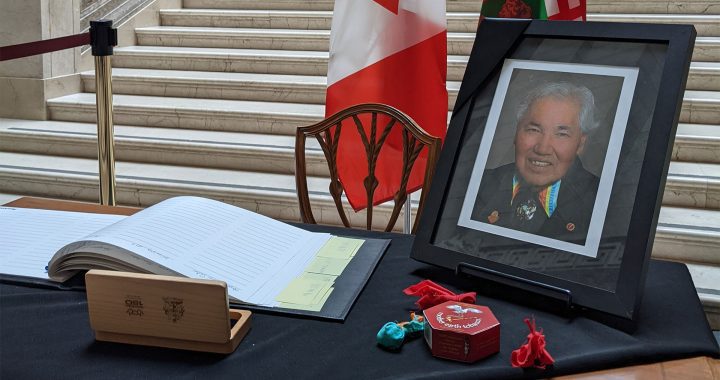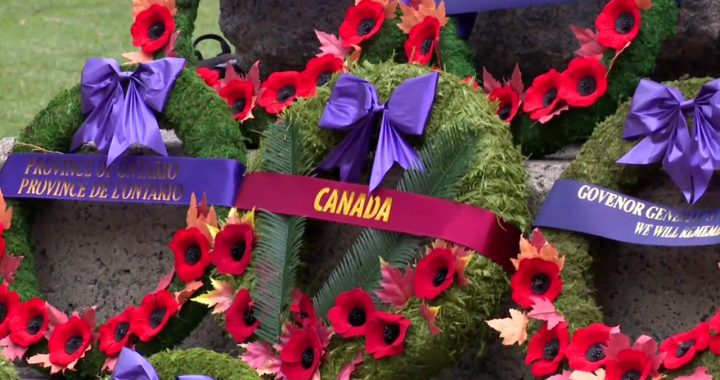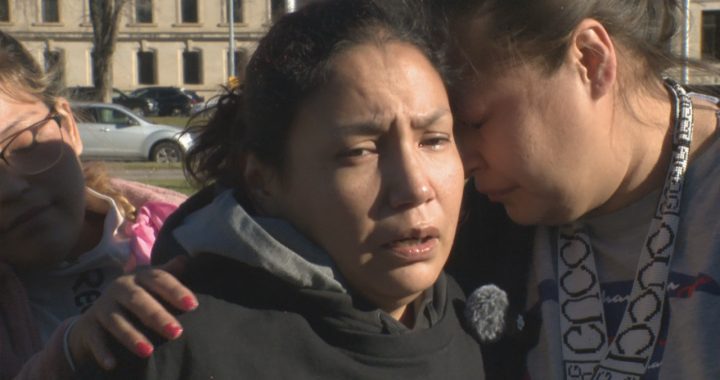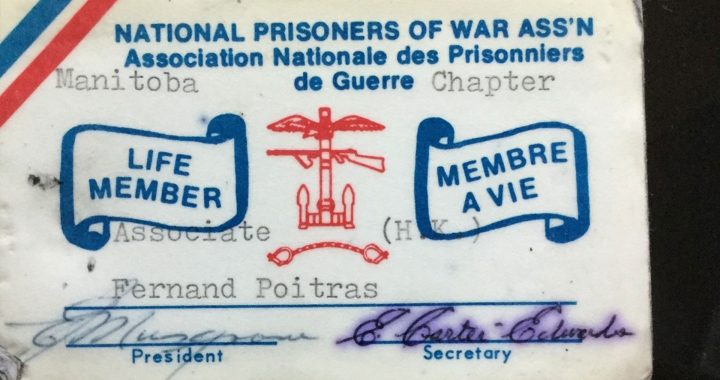
The Alberta government has announced the province will provide $4 million to expand the capacity of a First Nations-run homeless shelter by 125 beds in Lethbridge.
The Blood Tribe Department of Health has been operating the shelter since 2023 and will continue to do so under a new memorandum of understanding. The current number of beds at the Lethbridge homeless shelter is 75.
“We hope that solutions will be found for homelessness and drug dependency and to discontinue the service,” said Martin Heavyhead, a council member of the [Blood Tribe] Kainai Nation.
“It is, however, a reality that homelessness and drug abuse will continue in the foreseeable future. We realize, also, that we are the best organization to provide the best alternatives for people.”
Partners emphasized the importance of Indigenous leadership and culturally appropriate support for the largely Indigenous homeless population in Lethbridge, located 210 km southeast of Calgary.
Speakers at the event noted the shelter’s success in connecting residents to addiction treatment, healthcare and long-term housing through collaboration with multiple organizations like Alberta Health Services.
The announcement of additional money will assist in short-term shelter for the city’s unhoused population, up to 90 per cent of which are Indigenous, said Jason Nixon, minister for seniors, community and housing.
“We’re adding different types of additional support connections into our shelter, different types of transition that work with our shelter system, or adding women-only space is something that we’re seeing particularly in Edmonton and Calgary right now,” said Nixon.
Nixon praised the Lethbridge shelter.
Hea said it showed the importance of an Indigenous-led system and being connected with the Kainai Nation and other members of the Blackfoot Confederacy.
Critics for government strategy on homelessness
Some have been critical of the Alberta government’s strategy for focusing on homeless shelter space over long term affordable housing.
“Shelters are not housing. They are refugee camps for the internally displaced people of our war on public housing,” said Euan Thomson in an interview with APTN. Thompson is a harm reduction advocate and the director of EACH+EVERY, a national coalition of businesses that support harm-reduction measures.
“Where Alberta continues to fail is in thinking that pushing people through so called ‘addiction treatment’ will render them more amenable to housing. We are aiming at the wrong target—we need to implement housing-first strategies now,” said Thomson.
Read more
First Nations life expectancy plummets in Alberta due to opioid deaths
Housing-first is an addiction recovery strategy that focuses on moving people into independent and permanent housing.
“Housing is not contingent upon readiness, or on compliance [ie: instance, sobriety]. Rather, it is a rights-based intervention rooted in the philosophy that all people deserve housing, and that adequate housing is a precondition for recovery,” said a report by Homeless Hub titled Housing First in Canada: Supporting Communities to End Homelessness.
Homeless Hub is a project from the Canadian Observatory on Homelessness. A non-partisan research and policy partnership organization based out of York University.
Majority Indigenous homeless population across the country
This week, Canada’s housing advocate spelled out the numbers of homeless people across the country—the overwhelming majority of whom are Indigenous.
“Manitoba reported that in Winnipeg in 2018 two-thirds of people experiencing homelessness were Indigenous and that number climbs to 94 per cent in Thompson,” Marie-Josée Houle told APTN’s Nation to Nation.
Houle told APTN that 25 per cent of people who are homeless are currently living in encampments, according to a new report on the tent cities that have been popping up across the country.
“In Saskatoon, an estimated 90 per cent of people experiencing homelessness are Indigenous. In Edmonton, it is 60 per cent, and in Prince George it’s 80 per cent. So, there’s a huge disproportionate representation of Indigenous folks experiencing homelessness in Canada.”
The Federal Housing Advocate began working on a review of tent encampments in February of last year and spoke to a number of Indigenous groups as part of her study.








